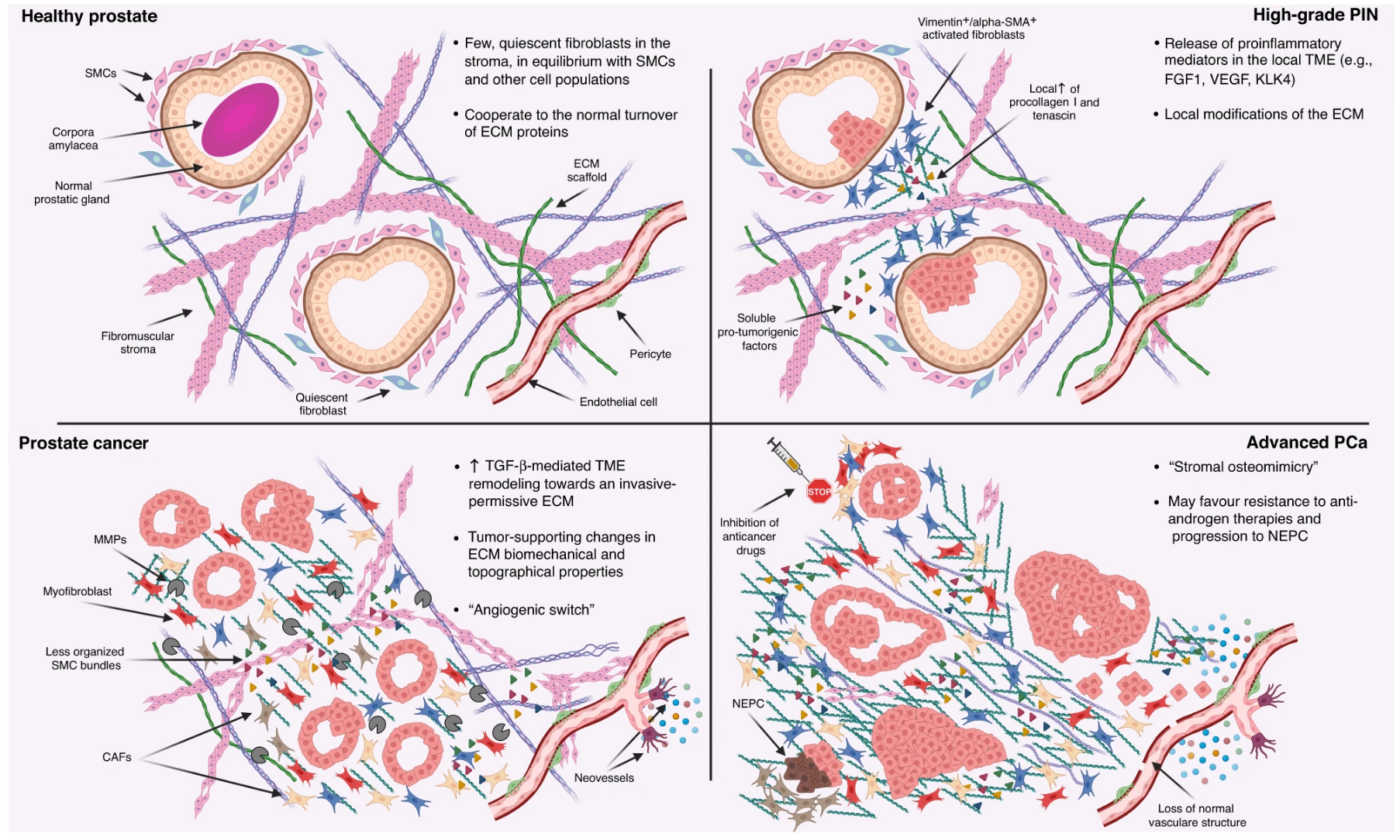Last updated date
2:45pmWhile progression from normal prostatic epithelium to invasive cancer is driven by molecular alterations, tumor cells and cells in the cancer microenvironment are co-dependent and co-evolve. We hypothesize that stromal cells surrounding prostate cancer, are transcriptionally and metabolically rewired to affect prostate cancer progression. We discovered that crossing knockout (KO) mice for FASN with the PTEN KO model of prostate cancer, massively reduced the stromal reaction and the invasive potential of the tumors in these genetically engineered mice (GEMMs). We therefore investigated in detail stromal cell populations. Our group described that stromal transcriptional programs vary in areas surrounding low vs. high grade human prostate cancer. In addition, benign stroma was transcriptionally distinct in tumor compared to non-tumor-bearing specimens. Furthermore, a stromal gene signature enriched in bone remodeling and immune-related pathways predicted metastases. We therefore analyzed mesenchymal cells from GEMMs of prostate cancer representing different stages of the disease by single-cell RNA sequencing (scRNA-seq) and compared them to human tumors. We identified distinct stromal populations that are conserved between mouse models and human prostate cancers driven by the same genomic alterations. Importantly, the transcriptional profiles of the stroma of murine models of advanced disease were similar to those of human prostate cancer bone metastases. Our lab is currently studying the molecular and metabolic characteristics of stromal cells to dissect the mechanism through which mesenchymal cells affect prostate cancer progression and the metastatic process.

(Image from Pederzoli F. et al, “Stromal cells in prostate cancer pathobiology: friends or foes?”, British Journal of Cancer 2023)

